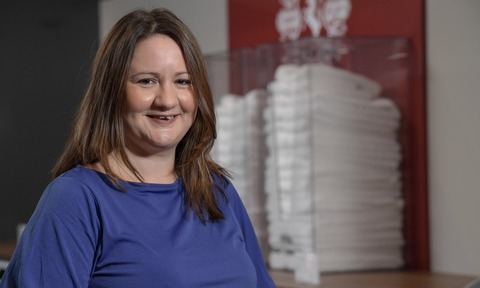
When considering how to become more environmentally friendly, Miele suggests that even the smallest changes can make a big difference, recommending questions labs should consider when seeking sustainable solutions.
The laboratory sector has come under scrutiny for the size of the carbon footprint in industries such as pharmaceuticals and global biotechnology. With some universities reporting that laboratory buildings are responsible for more than 60% of their total energy consumption and carbon emissions, labs of all types are assessing environmental impact to find ways to become greener.
One study found that 84% of lab researchers would like to do more to reduce the impact of their day-to-day scientific work on the environment, whereas 63% have already started to do this. This includes everything from adjusting equipment settings where appropriate to save energy, ordering supplies from sustainable vendors, using glassware instead of plastic, and fixing faults to minimise inefficiencies.
Is it durable?
Investing in a high-quality system that can stand the test of time will not only save on lifetime costs, but also prevents unnecessary landfill. The construction of the machine is also important. Typically, appliances that are crafted from materials such as stainless steel are more durable and when the product is ready for replacement, it is likely that components can be recycled. Selecting equipment from a manufacturer that considers recyclability in its product development and is committed to the sustainability agenda can provide additional reassurance at point of purchase.
Is it energy efficient?
To ensure the appliance is as environmentally friendly as possible, look out for product features that help conserve energy without compromising on performance. For example, does the machine’s water pressure adjust to individual needs? Does it offer short but thorough cleaning cycles? Are bespoke wash programmes available for different areas of application? Machines that offer a combi-tank can help save resources as it recycles water from the final rinse of a cycle to use as the first rinse for the next cycle. Load capacity is another aspect to consider as good use of available space using carriers and baskets can optimise cleaning and minimise water and energy consumption.
Is it future proof?
A newly purchased machine can soon become outdated as technology develops, so should be versatile enough to handle software updates; and adaptable enough to take on any connectivity upgrades. Whilst digital functionality is important, parts can go out of production, leaving a machine unrepairable. Consider a brand that has a parts-guarantee and can offer replacements for a number of years – minimising the need to purchase new products, reducing waste.
Miele Professional laboratory glasswashers have a long service life and deliver high levels of performance combined with outstanding efficiency and economy. Learn more about how Miele’s solutions can help you improve your green credentials, here.





